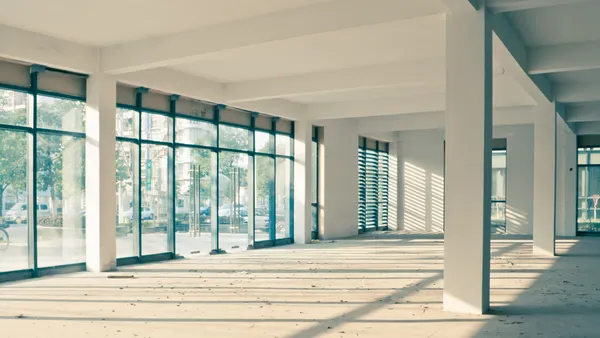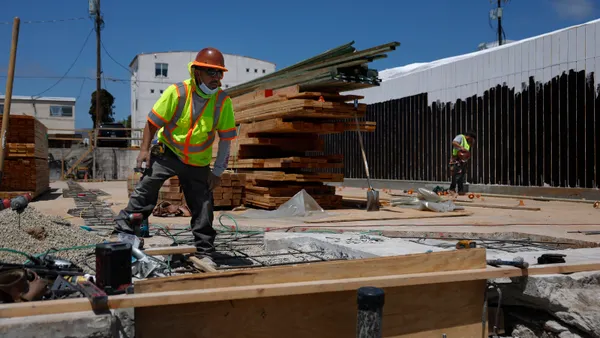Dive Brief:
- California lawmakers voted to reject a contentious housing bill, S.B. 827, during a meeting of the State Senate's Transportation and Housing Committee on Tuesday, according to The New York Times and others.
- The bill, introduced by state Sen. Scott Wiener, D, at the beginning of the legislative session in early January, would have allowed developers to build five-story buildings within a half mile of public rail stops, effectively overruling existing municipal zoning restrictions.
- Wiener said it was introduced to lessen the state's housing crisis by increasing housing supply, and to also decrease the need for driving, therefore assisting California in its goal to reduce greenhouse gas emissions. However, the bill was met with strong opposition from lawmakers who believed it was "far too overreaching" and would disproportionately affect low-income communities, therefore leading to its demise.
Dive Insight:
Homelessness and affordable housing crises have swept California's metropolitan areas for decades, as cities struggle to address arguably prohibitive housing costs. While Weiner's bill was in good intentions to theoretically reduce such costs, some lawmakers — most notably from Los Angeles and San Francisco — believed the bill would accelerate rates of resident displacement.
By increasing housing density near transit, existing residents within the affected areas, especially those in rent-controlled buildings, may have had no choice but to seek cheaper housing in other neighborhoods. And while Weiner made efforts to amend the bill and scale back the number of stories developers could add to each building, such amendments did little to sway opponents.
It is possible such a bill would have found more success outside of an election year. However due to the upcoming midterms and state Senate races, lawmakers have been hesitant to cast support on a bill that has caused so much debate. Yet the strong opinions on both sides indicate this bill will be reintroduced — likely with further amendments — at a later date.
In the meantime, the pressure is on city governments to make housing affordability a top, if not urgent, priority, especially as urban populations continue to increase. "This issue isn't going away," Wiener reportedly said during the meeting.











